Finding a dependable China sheet metal fabrication partner can make the difference between a smooth production cycle and costly delays or quality issues. With many options in the market, buyers must understand how to evaluate suppliers, manage communication, and leverage China’s manufacturing strengths while mitigating risks. In this comprehensive guide, we cover everything you need to know: from initial research and vetting, through technical and logistical considerations, to building a long-term partnership. We’ll also explain why Shengwo Machinery stands out as a top China sheet metal fabrication supplier.
Introduction: Navigating the China Sheet Metal Fabrication Landscape
China has become a global hub for sheet metal manufacturing due to its robust industrial ecosystem and competitive costs. However, not all suppliers deliver the same quality, consistency, or service level. When seeking China sheet metal fabrication, companies must balance factors such as technical capability, quality assurance, communication, cultural understanding, and supply chain logistics. This guide will help you navigate these considerations and choose a partner that aligns with your project requirements and business goals.
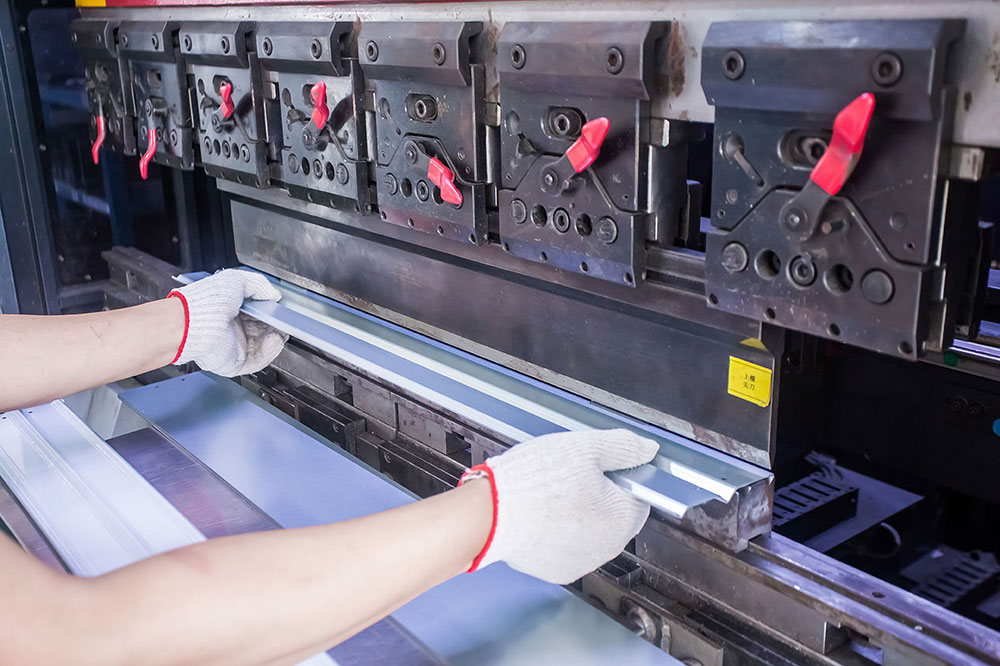
Understanding Your Needs Before Searching for China Sheet Metal Fabrication
Before contacting suppliers, clarify your own requirements:
- Product Specifications: Define material types (stainless steel, aluminum, etc.), thickness ranges, tolerances, finishes, and standards (e.g., ISO, industry-specific). This ensures accurate quotes and avoids misunderstandings.
- Volume and Timeline: Estimate initial prototyping needs, batch sizes, and long-term volume forecasts. Suppliers often optimize differently for prototypes versus mass production.
- Technical Complexity: Identify features like complex bends, intricate cut patterns, assembly requirements, or special treatments. More complex designs benefit from suppliers with advanced equipment and engineering support.
- Budget Constraints: Determine acceptable cost targets, including unit price, tooling or setup fees, and shipping expenses.
- Quality Standards and Certifications: Specify required certifications (e.g., ISO9001, IATF16949 for automotive, ISO13485 for medical). This helps filter suppliers with appropriate quality management systems.
- Supply Chain Integration: Consider whether the supplier should handle end-to-end services (design assistance, fabrication, finishing, assembly, packaging, logistics) or only specific stages.
Clearly documenting these needs is the foundation for evaluating China sheet metal fabrication suppliers systematically.
Researching Potential China Sheet Metal Fabrication Suppliers
Online Directories and Industry Platforms
- B2B Marketplaces: Platforms like Alibaba, Global Sources, and Made-in-China list numerous sheet metal fabricators. Use filters for certifications, capabilities, and location.
- Professional Networks and References: Seek recommendations from industry peers, trade associations, or engineering networks. First-hand referrals can point to reliable partners.
- Company Websites and Portfolios: Review supplier websites for case studies, equipment lists, client testimonials, and product galleries. Look for evidence of experience in your industry.
Evaluating Technical Capability
- Equipment and Technology: Suppliers with modern CNC laser cutting, precision bending, automated welding, and proprietary surface processing systems can handle tighter tolerances and complex geometry. Ask for details: machine models (e.g., Bystronic, Trumpf), laser power, CNC press brake tonnage, automation level.
- Engineering Support: A strong partner offers Design for Manufacturability (DFM) services, optimizing your design for sheet metal processes to reduce cost and improve yield. Verify if they have a self-developed DFM system or experienced engineering team.
- Prototyping and Testing: Confirm the supplier’s ability to produce prototypes quickly (e.g., 3–7 days) and perform reliability tests (e.g., structural, environmental, fatigue) to validate designs before mass production.
- Surface Treatments and Finishing: Comprehensive capabilities (electroplating, powder coating, anodizing, plating, spraying) and specialized multi-stage processing equipment ensure the final product meets aesthetic and functional requirements.
Quality Management and Certifications
- ISO Certifications: ISO9001 indicates a formal quality management system. Industry-specific standards (IATF16949, ISO13485) are essential for automotive or medical parts. Ensure the supplier holds up-to-date certificates.
- Patents and R&D: Suppliers with patented technologies or recognized R&D strength often deliver innovative solutions, higher efficiency, or unique processes (e.g., Shengwo’s patented sheet metal surface multi-station processing equipment).
- Inspection and Calibration: Inquire about measurement equipment (CMM, calipers, optical comparators) and inspection procedures (first-article inspection, in-process checks, final inspection). Regular calibration logs indicate a mature QA process.
- Traceability and Documentation: Reliable suppliers maintain traceability of batches, materials, and process parameters. Documentation (QC reports, material certificates, test records) is vital for auditing and compliance.
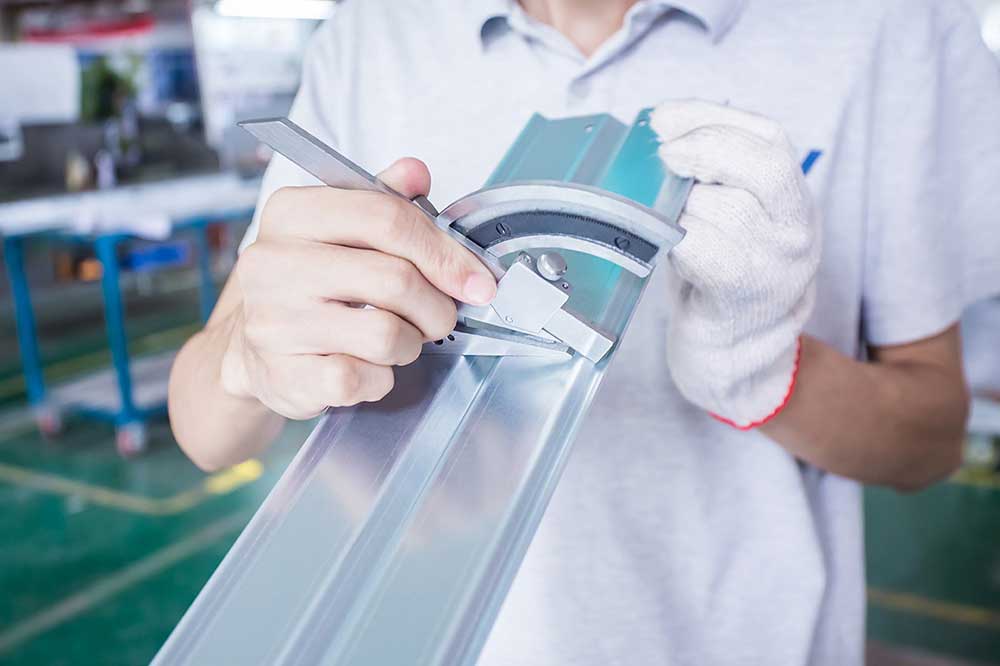
Vetting and Communicating with China Sheet Metal Fabrication Suppliers
Request for Quotation (RFQ) Best Practices
- Detailed RFQ Package: Provide clear 2D drawings or 3D CAD models with material specifications, tolerances, surface finish requirements, and quantity estimates. The more precise the RFQ, the more accurate the quote.
- Ask for Breakdown: Request line-item costs: tooling/setup fees, unit price for different volumes, finishing costs, packaging options, shipping estimates. This transparency helps compare suppliers effectively.
- Prototype vs. Mass Production: Clarify if the quote covers prototyping, small batch, and large-scale runs, including economies of scale considerations.
Communication and Language Considerations
- Language Proficiency: Ensure the supplier has fluent English speakers or a dedicated export team to avoid miscommunication. Clear, timely responses are a positive sign.
- Cultural Understanding: Recognize differences in communication styles and business etiquette. Building rapport via video calls or visits helps establish trust and clarity.
- Time Zone and Response Time: Agree on expected response windows and project timelines. Suppliers who commit to prompt communication (e.g., within 24 hours) demonstrate reliability.
Factory Audits and Visits
- On-Site Audit: Whenever possible, conduct factory visits or employ third-party audit services to verify facilities, equipment status, working conditions, and quality practices.
- Virtual Tours: If in-person visits are impractical, request live video tours of production lines, inspection rooms, and warehouses. Pay attention to organization, cleanliness, and workflow efficiency.
- Key Audit Focus Areas:
- Machine utilization and maintenance
- Workflow layout (efficient material flow, minimal handling)
- Safety and environmental compliance
- Workforce skill level and training programs
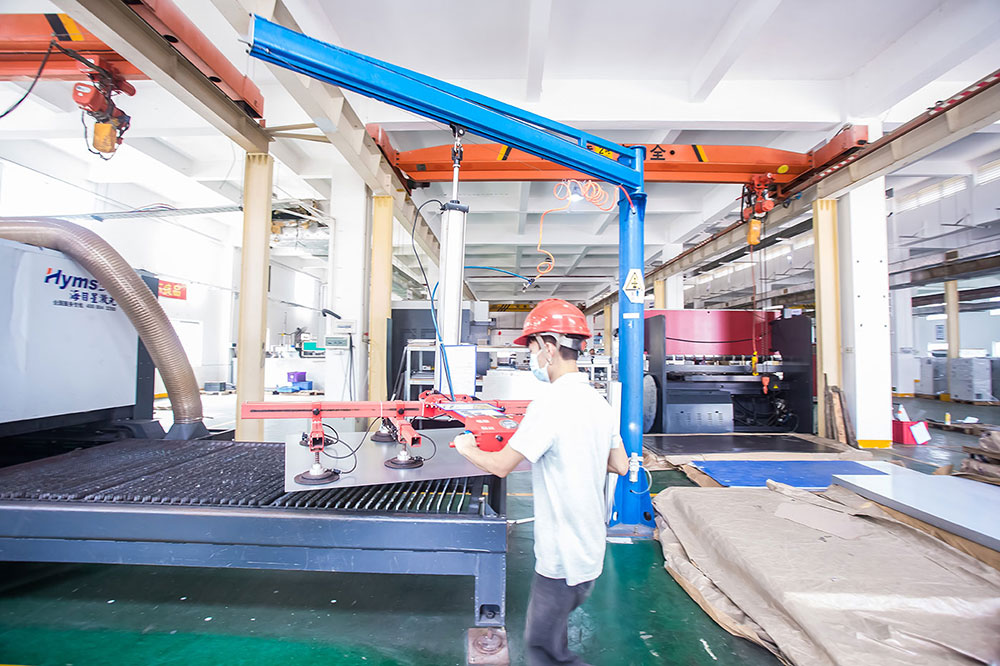
Cost, Lead Time, and Supply Chain Considerations
Balancing Cost and Quality in China Sheet Metal Fabrication
- Total Cost of Ownership: Evaluate not only unit price but also costs related to quality issues (rework, scrap), delays, and logistics. A slightly higher unit price may be justified by better quality and fewer risks.
- Volume Discounts: Discuss price tiers for different quantities. Many suppliers offer reduced unit costs for larger orders; plan production volumes to leverage these.
- Negotiation Strategies: Use multiple quotes to benchmark prices. However, be wary of unusually low quotes that may hide inferior materials or corner-cutting in processes.
Lead Time Management
- Prototype Lead Time: Partner should deliver prototypes quickly to facilitate design validation. Shengwo’s intelligent production and ERP-managed workflows often yield rapid prototype turnaround (e.g., 3–7 days depending on complexity).
- Production Scheduling: Understand supplier capacity and current workload. Agree on realistic lead times for mass production, accounting for peak seasons (e.g., Chinese New Year) and potential delays.
- Buffer Planning: Build buffer time into project schedules for unforeseen delays (material shortages, equipment maintenance). A reliable supplier communicates proactively about any issues.
Logistics and Shipping
- Shipping Options: Evaluate air vs. sea freight based on urgency, cost, and product value/weight. Suppliers experienced in export will guide optimal packaging and shipping methods.
- Customs and Compliance: Work with suppliers that handle export documentation (commercial invoice, packing list, certificate of origin) accurately to avoid customs delays.
- Supply Chain Resilience: Assess the supplier’s ability to manage disruptions (e.g., multiple material sources, inventory buffers). Shengwo’s ERP-controlled inventory and intelligent logistics enhance supply chain reliability.
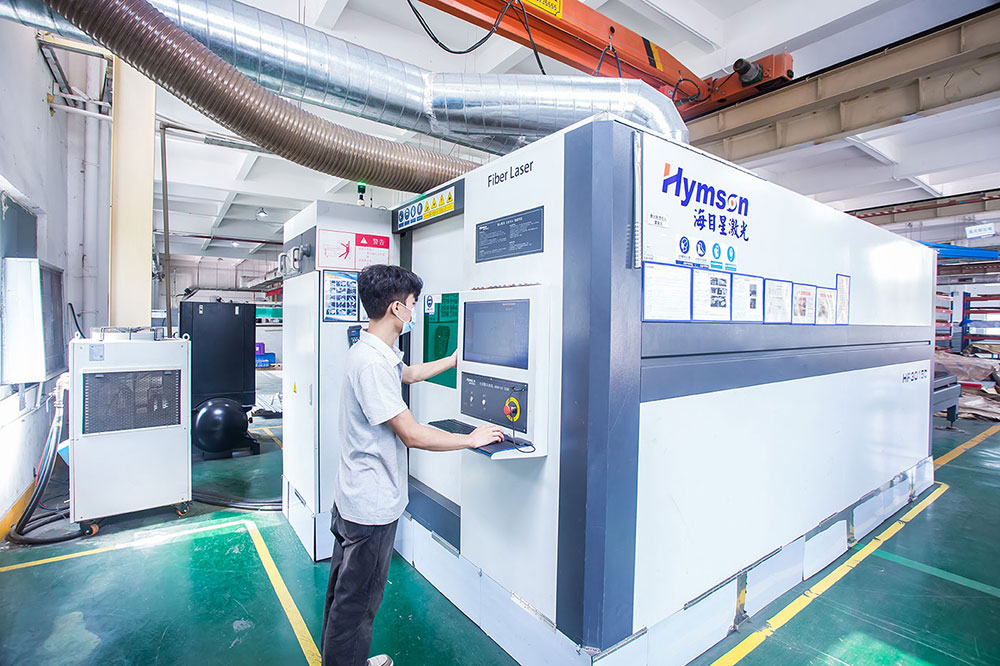
Technical Collaboration and Innovation in China Sheet Metal Fabrication
- Early Involvement: Engage the supplier early in the design phase. Suppliers with DFM expertise can suggest modifications to reduce cost, simplify assembly, or improve performance.
- DFM Tools: Advanced suppliers use proprietary or commercial DFM software to analyze designs for potential issues (material thickness transitions, bend clearances, nesting efficiency).
- Iterative Prototyping: Rapid prototyping cycles enable quick feedback and refinement, shortening product development timelines.
Industry 4.0 and Intelligent Manufacturing
- Digital Management Systems: ERP integration for real-time production tracking, inventory management, and quality monitoring ensures transparency and efficiency.
- Automation and Robotics: Automated laser cutting cells, CNC bending lines, and welding stations increase consistency and reduce human error.
- Data-Driven Optimization: Collecting production data enables continuous improvement—identifying bottlenecks, optimizing machine utilization, and reducing waste.
Sustainable Practices
- Material Efficiency: Intelligent nesting reduces scrap, and recycling programs handle offcuts responsibly.
- Energy Efficiency: Modern equipment (e.g., fiber lasers) consumes less power. Suppliers committed to sustainability often track and reduce their carbon footprint.
- Environmental Compliance: Verify that the supplier adheres to local and international environmental regulations (waste treatment, emissions control).
Why Choose Shengwo for China Sheet Metal Fabrication
Shengwo Machinery embodies the qualities of a reliable China sheet metal fabrication partner. Here’s how our strengths align with buyer needs:
- Proven Global Credentials: Certified supplier for Fortune 500 clients (e.g., Schneider Electric), with honors like “National High-tech Enterprise” and ISO certifications, reflecting robust quality systems.
- Comprehensive One-Stop Services: From in-depth design and DFM optimization to manufacturing, assembly, packaging, and intelligent logistics—Shengwo handles the full value chain.
- Modern Production Base: A 2,500 m² facility integrating R&D, reliability testing, structural parts production, finished product assembly, and ERP-driven operations ensures efficient, accurate output.
- Advanced Technology and Patents: Equipped with laser cutting, precision bending, efficient welding equipment, and proprietary sheet metal surface multi-station processing. Our patented processes deliver distinctive quality advantages.
- Industry 4.0 Focus: ERP digital management, intelligent production processes, and a diverse, collaborative culture drive continuous improvement and rapid responsiveness.
- DFM and Engineering Support: Self-developed DFM optimization system shortens development cycles, improves yields, and optimizes supply chain efficiency—helping you bring products to market faster.
- Customer-Centric Approach: Shengwo’s inclusive corporate culture and efficient teams prioritize transparent communication, timely feedback, and problem-solving mindset.
- Broad Industry Experience: Serving automotive, medical, communications, cloud computing, consumer electronics, retail, and more. We understand industry-specific standards and best practices.
- Sustainable Commitment: As part of global industrial upgrading, Shengwo focuses on energy-efficient equipment and waste reduction, aligning with corporate social responsibility goals.
By choosing Shengwo as your China sheet metal fabrication supplier, you gain a strategic partner dedicated to quality, innovation, and long-term collaboration.
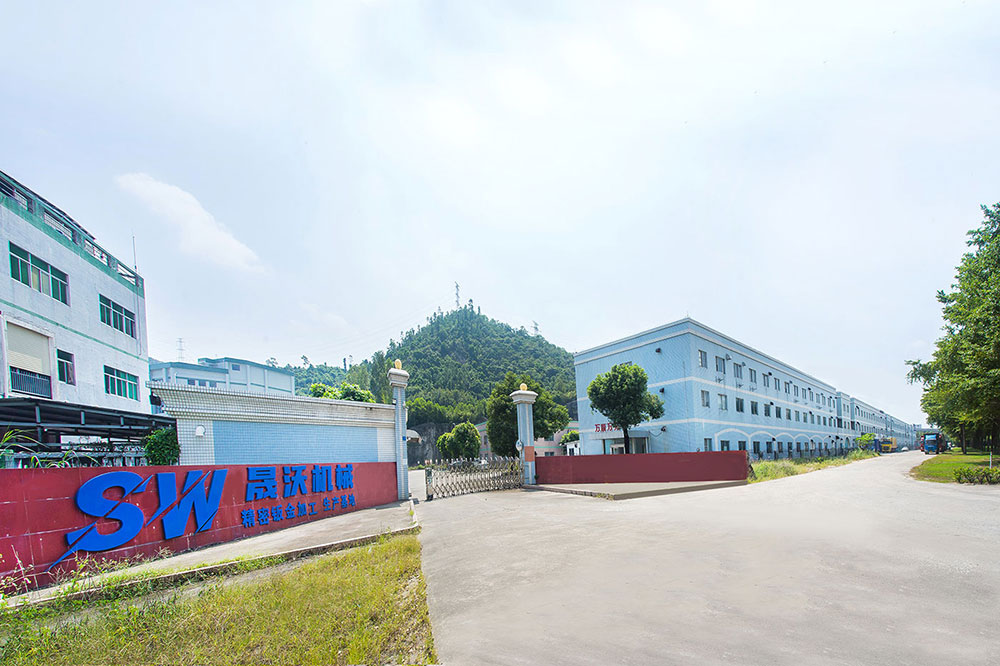
Conclusion: Partnering for Success in China Sheet Metal Fabrication
Selecting the right China sheet metal fabrication supplier involves careful evaluation of technical capabilities, quality systems, communication practices, and supply chain management. By following the steps outlined—defining requirements, researching suppliers, vetting capabilities, managing costs and logistics, and fostering technical collaboration—you can mitigate risks and achieve excellent results. Shengwo Machinery exemplifies a reliable partner with global credentials, advanced technology, comprehensive services, and a customer-first approach.
Ready to Find Your Ideal China Sheet Metal Fabrication Partner?
Contact Shengwo Machinery today for a free consultation, detailed quote, or virtual factory tour. Let us help you turn your designs into reality with precision, efficiency, and peace of mind.
FAQs
Q1: How can I verify a China sheet metal fabrication supplier’s credibility remotely?
A: Request detailed photos or videos of the facility, ask for virtual factory tours, review certifications, and check client references. Reputable suppliers like Shengwo provide transparent insights and documentation.
Q2: What questions should I ask in my RFQ to ensure accurate quotes?
A: Include material type and grade, sheet thickness, tolerances, surface finish requirements, projected volumes, prototype needs, and expected lead times. Clear specifications help suppliers give precise quotes.
Q3: How do I manage IP protection when working with China sheet metal fabrication partners?
A: Use NDAs before sharing sensitive designs, work with suppliers that uphold confidentiality policies, and consider segmented manufacturing or secure design repositories. Shengwo follows strict IP protocols to safeguard customer data.
Q4: What logistics challenges are common when importing from China?
A: Delays at customs, shipping cost fluctuations, and documentation errors. Mitigate by partnering with experienced suppliers who handle export processes accurately and suggest optimal shipping methods.
Q5: How do I ensure consistent quality over multiple production batches?
A: Establish clear quality standards and inspection criteria upfront, request sample inspections, use statistical process control, and maintain regular communication. Shengwo’s ERP-based tracking and multi-stage inspections ensure batch-to-batch consistency.
Q6: Can Shengwo handle urgent or small-batch orders?
A: Yes. With efficient workflows, rapid prototyping capabilities, and flexible production planning, Shengwo accommodates urgent requests and small volumes while maintaining quality.
Q7: How does Shengwo support sustainable manufacturing?
A: Through energy-efficient equipment (e.g., fiber lasers), intelligent nesting to minimize waste, recycling programs for offcuts, and compliance with environmental regulations—contributing to eco-friendly production.
Q8: What role does DFM play in sheet metal fabrication?
A: Design for Manufacturability (DFM) optimizes product designs for efficient fabrication, reducing costs and accelerating time-to-market. Shengwo’s self-developed DFM system analyzes and refines designs for best sheet metal processes.




